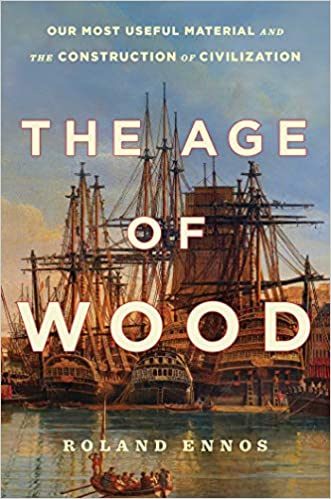
LET US DREAM
by Pope Francis
In this uplifting and practical book, written in collaboration with his biographer, Austen Ivereigh, the preeminent spiritual leader explains why we must—and how we can—make the world safer, fairer, and healthier for all people now.
In the COVID crisis, the beloved shepherd of over one billion Catholics saw the cruelty and inequity of our society exposed more vividly than ever before. He also saw, in the resilience, generosity, and creativity of so many people, the means to rescue our society, our economy, and our planet. In direct, powerful prose, Pope Francis urges us not to let the pain be in vain.
He begins Let Us Dream by exploring what this crisis can teach us about how to handle upheaval of any kind in our own lives and the world at large. With unprecedented candor, he reveals how three crises in his own life changed him dramatically for the better. By its very nature, he shows, crisis presents us with a choice: we make a grievous error if we try to return to some pre-crisis state. But if we have the courage to change, we can emerge from the crisis better than before.
Francis then offers a brilliant, scathing critique of the systems and ideologies that conspired to produce the current crisis, from a global economy obsessed with profit and heedless of the people and environment it harms, to politicians who foment their people’s fear and use it to increase their own power at their people’s expense. He reminds us that Christians’ first duty is to serve others, especially the poor and the marginalized, just as Jesus did.
Finally, the Pope offers an inspiring and actionable blueprint for building a better world for all humanity by putting the poor and the planet at the heart of new thinking. For this plan, he draws not only on sacred sources, but on the latest findings from renowned scientists, economists, activists, and other thinkers. Yet rather than simply offer prescriptions, he shows how ordinary people acting together despite their differences can discover unforeseen possibilities.
Along the way, he offers dozens of wise and surprising observations on the value of unconventional thinking, on why we must dramatically increase women’s leadership in the Church and throughout society, on what he learned while scouring the streets of Buenos Aires with garbage-pickers, and much more.
Let Us Dream is an epiphany, a call to arms, and a pleasure to read. It is Pope Francis at his most personal, profound and passionate. With this book and with open hearts, we can change the world.

HAPPINESS BECOMES YOU
by Tina Turner
Tina Turner–beloved living legend–returns with a deeply personal and inspiring book that reveals the wisdom behind her journey to joy and provides a practical guide to finding happiness in your own life.
Tina is a global icon of hope. And now, with Happiness Becomes You, she shows how anyone can overcome obstacles in life–even transform the impossible to possible–and fulfill our dreams. She shows how we, too, can improve our lives, empowering us with spiritual tools and sage advice to enrich our unique paths.
For decades, Tina has shined brightly as an example of someone who can generate hope from nothing, break through all limitations, and achieve success that endures. Drawing on the lessons of her own experiences–rising out of sorrowful lows to stratospheric heights–she illuminates the practical principles of Buddhism and how they have helped her elevate from despair, adversity, and poverty to joy, stability, and prosperity. Now, Tina offers the wisdom of an extraordinary lifetime in Happiness Becomes You making this the perfect gift of inspiration for you and those you love.

ROCK FORCE
by Kevin Maurer
From the #1 New York Times bestselling coauthor of No Easy Day comes a thrilling World War II story of the American airborne soldiers who captured a Japanese-held island fortress
“Rock Force is a beautifully told story of war: the friendships, the courage and despair, and the terror… One of the most exciting books ever written about the Pacific War.”—Mitch Weiss, New York Times bestselling coauthor of Countdown 1945
In late December 1941, General Douglas MacArthur, caught off guard by the Japanese invasion of the Philippines, is forced to retreat to Corregidor, a jagged, rocky island fortress at the mouth of Manila Bay. Months later, under orders from the president, the general is whisked away in the dark of night, leaving his troops to their fate. It is a bitter pill for a fiercely proud warrior who has always protected his men. He famously declares “I shall return,” but the humiliation of Corregidor haunts him, even earning him the derisive nickname “Dugout Doug.”
In early 1945, MacArthur returns to the Philippines, his eyes firmly fixed on Corregidor. To take back the island, he calls on the 503rd Parachute Infantry Regiment, a highly trained veteran airborne unit. Their mission is to jump onto the island—hemmed in by sheer cliffs, pockmarked by bomb craters, bristling with deadly spiky broken tree trunks—and wrest it from some 6,700 Japanese defenders who await, fully armed and ready to fight to the death.
Drawn from firsthand accounts and personal interviews with the battle’s surviving veterans, acclaimed war correspondent and bestselling author Kevin Maurer delves into this extraordinary tale, uncovering astonishing accounts of bravery and heroism during an epic, yet largely forgotten, clash of the Pacific War. Here is an intimate story of uncommon soldiers showing uncommon courage and winning, through blood and sacrifice, the redemption of General MacArthur.

THE AGE OF WOOD
by Roland Ennos
A groundbreaking examination of the role that wood and trees have played in our global ecosystem—including human evolution and the rise and fall of empires—in the bestselling tradition of Yuval Harari’s Sapiens and Mark Kurlansky’s Salt.
As the dominant species on Earth, humans have made astonishing progress since our ancestors came down from the trees. But how did the descendants of small primates manage to walk upright, become top predators, and populate the world? How were humans able to develop civilizations and produce a globalized economy? Now, in The Age of Wood, Roland Ennos shows for the first time that the key to our success has been our relationship with wood.
Brilliantly synthesizing recent research with existing knowledge in fields as wide-ranging as primatology, anthropology, archaeology, history, architecture, engineering, and carpentry, Ennos reinterprets human history and shows how our ability to exploit wood’s unique properties has profoundly shaped our bodies and minds, societies, and lives. He takes us on a sweeping ten-million-year journey from Southeast Asia and West Africa where great apes swing among the trees, build nests, and fashion tools; to East Africa where hunter gatherers collected their food; to the structural design of wooden temples in China and Japan; and to Northern England, where archaeologists trace how coal enabled humans to build an industrial world. Addressing the effects of industrialization—including the use of fossil fuels and other energy-intensive materials to replace timber—The Age of Wood not only shows the essential role that trees play in the history and evolution of human existence, but also argues that for the benefit of our planet we must return to more traditional ways of growing, using, and understanding trees.
A winning blend of history and science, this is a fascinating and authoritative work for anyone interested in nature, the environment, and the making of the world as we know it.

THE JANUS POINT
by Julian Barbour
In a universe filled by chaos and disorder, one physicist makes the radical argument that the growth of order drives the passage of time — and shapes the destiny of the universe.
Time is among the universe’s greatest mysteries. Why, when most laws of physics allow for it to flow forward and backward, does it only go forward? Physicists have long appealed to the second law of thermodynamics, held to predict the increase of disorder in the universe, to explain this. In The Janus Point, physicist Julian Barbour argues that the second law has been misapplied and that the growth of order determines how we experience time. In his view, the big bang becomes the “Janus point,” a moment of minimal order from which time could flow, and order increase, in two directions. The Janus Point has remarkable implications: while most physicists predict that the universe will become mired in disorder, Barbour sees the possibility that order — the stuff of life — can grow without bound.
A major new work of physics, The Janus Point will transform our understanding of the nature of existence.
Still Hot in Non-Fiction & Biography

THE BEST OF ME
by David Sedaris
“Genius… It is miraculous to read these pieces… You must read The Best of Me.” —Andrew Sean Greer, New York Times Book Review
David Sedaris’s best stories and essays, spanning his remarkable career—as selected by the author himself, and including a new essay
A CNN and Christian Science Monitor Best Book of the Month
For more than twenty-five years, David Sedaris has been carving out a unique literary space, virtually creating his own genre. A Sedaris story may seem confessional, but is also highly attuned to the world outside. It opens our eyes to what is at absurd and moving about our daily existence. And it is almost impossible to read without laughing.
Now, for the first time collected in one volume, the author brings us his funniest and most memorable work. In these stories, Sedaris shops for rare taxidermy, hitchhikes with a lady quadriplegic, and spits a lozenge into a fellow traveler’s lap. He drowns a mouse in a bucket, struggles to say “give it to me” in five languages, and hand-feeds a carnivorous bird.
But if all you expect to find in Sedaris’s work is the deft and sharply observed comedy for which he became renowned, you may be surprised to discover that his words bring more warmth than mockery, more fellow-feeling than derision. Nowhere is this clearer than in his writing about his loved ones. In these pages, Sedaris explores falling in love and staying together, recognizing his own aging not in the mirror but in the faces of his siblings, losing one parent and coming to terms—at long last—with the other.
Taken together, the stories in TheBest of Me reveal the wonder and delight Sedaris takes in the surprises life brings him. No experience, he sees, is quite as he expected—it’s often harder, more fraught, and certainly weirder—but sometimes it is also much richer and more wonderful.
Full of joy, generosity, and the incisive humor that has led David Sedaris to be called “the funniest man alive” (Time Out New York), The Best of Me spans a career spent watching and learning and laughing—quite often at himself—and invites readers deep into the world of one of the most brilliant and original writers of our time.

CASTE: THE ORGINS OF OUR DISCONTENTS
by Isabel Wilkerson
#1 NEW YORK TIMES BESTSELLER • OPRAH’S BOOK CLUB PICK • LONGLISTED FOR THE NATIONAL BOOK AWARD • “An instant American classic and almost certainly the keynote nonfiction book of the American century thus far.”—Dwight Garner, The New York Times
The Pulitzer Prize–winning, bestselling author of The Warmth of Other Suns examines the unspoken caste system that has shaped America and shows how our lives today are still defined by a hierarchy of human divisions.
NAMED ONE OF THE TEN BEST BOOKS OF THE YEAR BY THE WASHINGTON POST AND PUBLISHERS WEEKLY AND ONE OF THE BEST BOOKS OF THE YEAR BY The New York Times Book Review • O: The Oprah Magazine • Time • Marie Claire • Town & Country
“As we go about our daily lives, caste is the wordless usher in a darkened theater, flashlight cast down in the aisles, guiding us to our assigned seats for a performance. The hierarchy of caste is not about feelings or morality. It is about power—which groups have it and which do not.”
In this brilliant book, Isabel Wilkerson gives us a masterful portrait of an unseen phenomenon in America as she explores, through an immersive, deeply researched narrative and stories about real people, how America today and throughout its history has been shaped by a hidden caste system, a rigid hierarchy of human rankings.
Beyond race, class, or other factors, there is a powerful caste system that influences people’s lives and behavior and the nation’s fate. Linking the caste systems of America, India, and Nazi Germany, Wilkerson explores eight pillars that underlie caste systems across civilizations, including divine will, bloodlines, stigma, and more. Using riveting stories about people—including Martin Luther King, Jr., baseball’s Satchel Paige, a single father and his toddler son, Wilkerson herself, and many others—she shows the ways that the insidious undertow of caste is experienced every day. She documents how the Nazis studied the racial systems in America to plan their out-cast of the Jews; she discusses why the cruel logic of caste requires that there be a bottom rung for those in the middle to measure themselves against; she writes about the surprising health costs of caste, in depression and life expectancy, and the effects of this hierarchy on our culture and politics. Finally, she points forward to ways America can move beyond the artificial and destructive separations of human divisions, toward hope in our common humanity.
Beautifully written, original, and revealing, Caste: The Origins of Our Discontents is an eye-opening story of people and history, and a reexamination of what lies under the surface of ordinary lives and of American life today.
